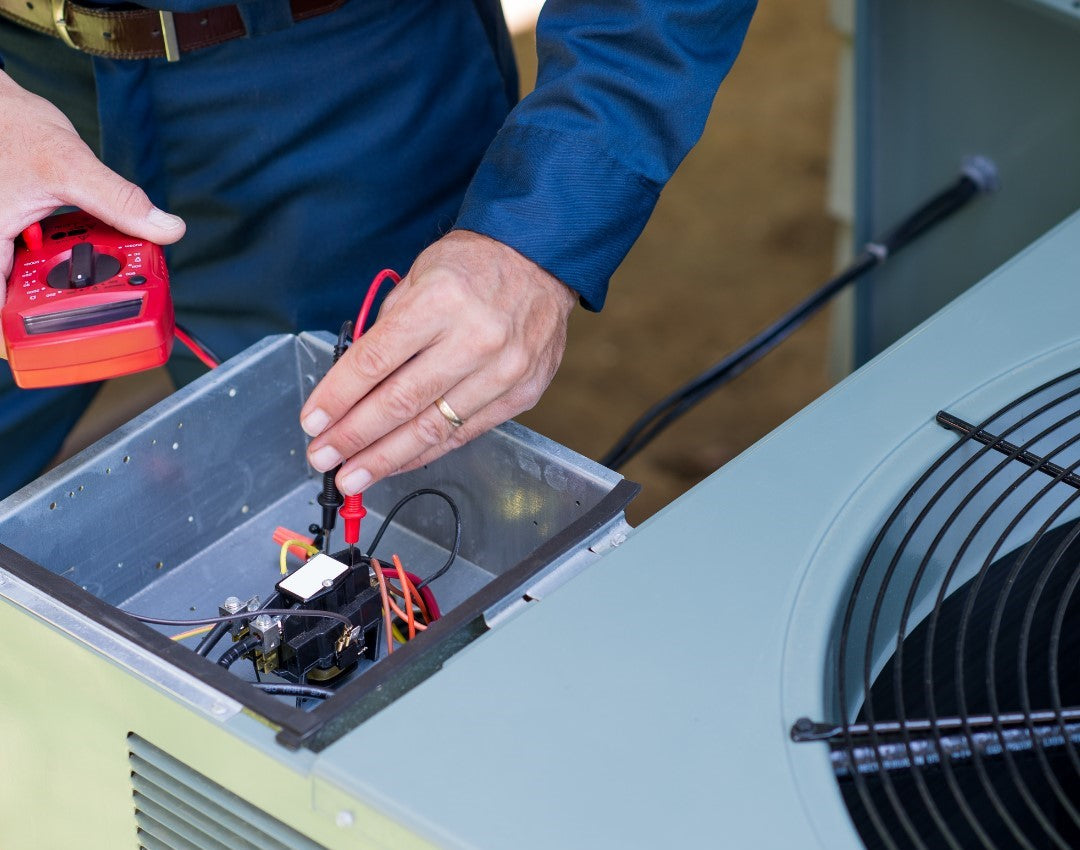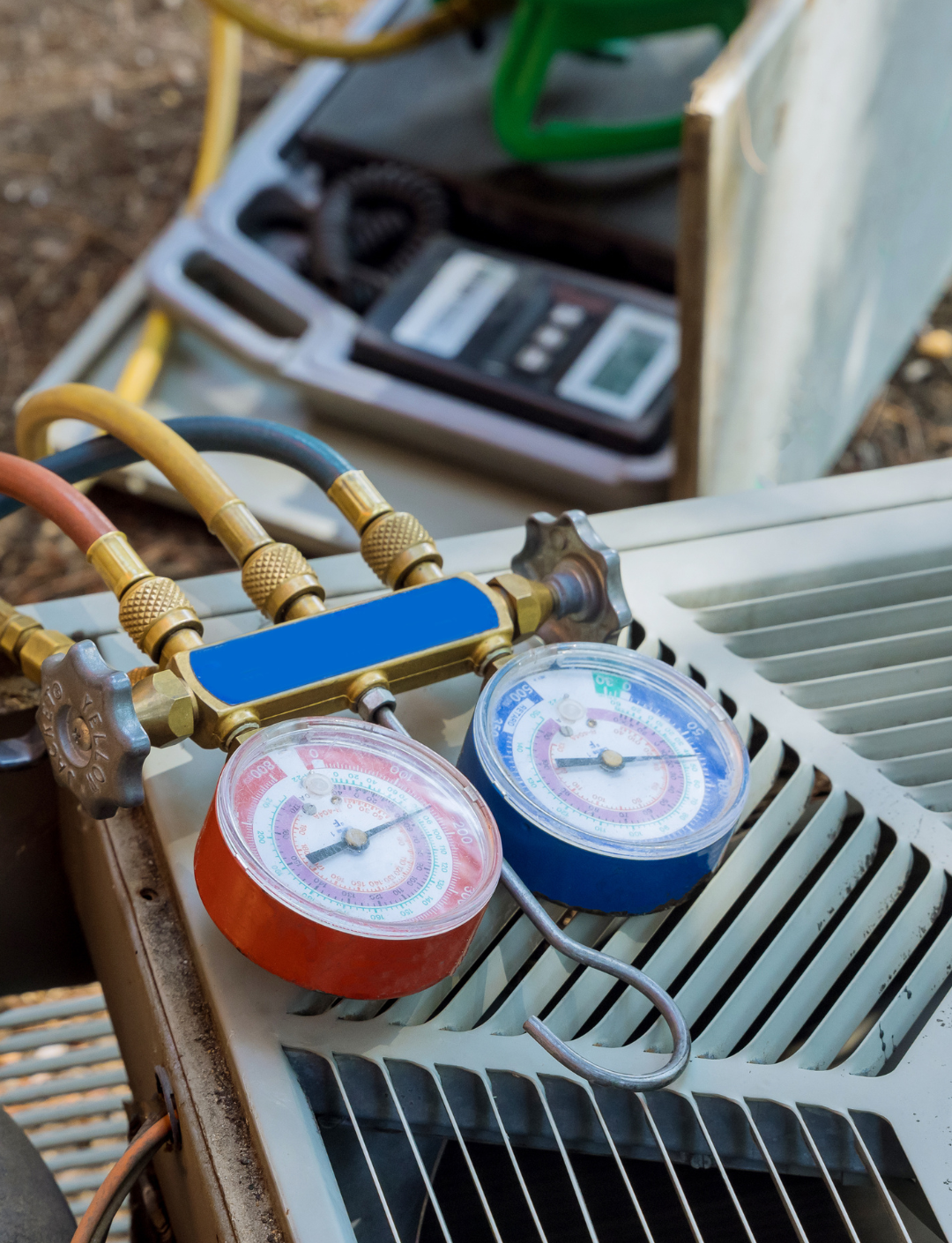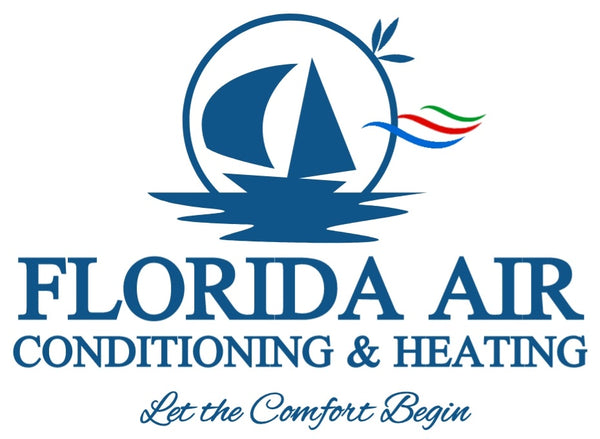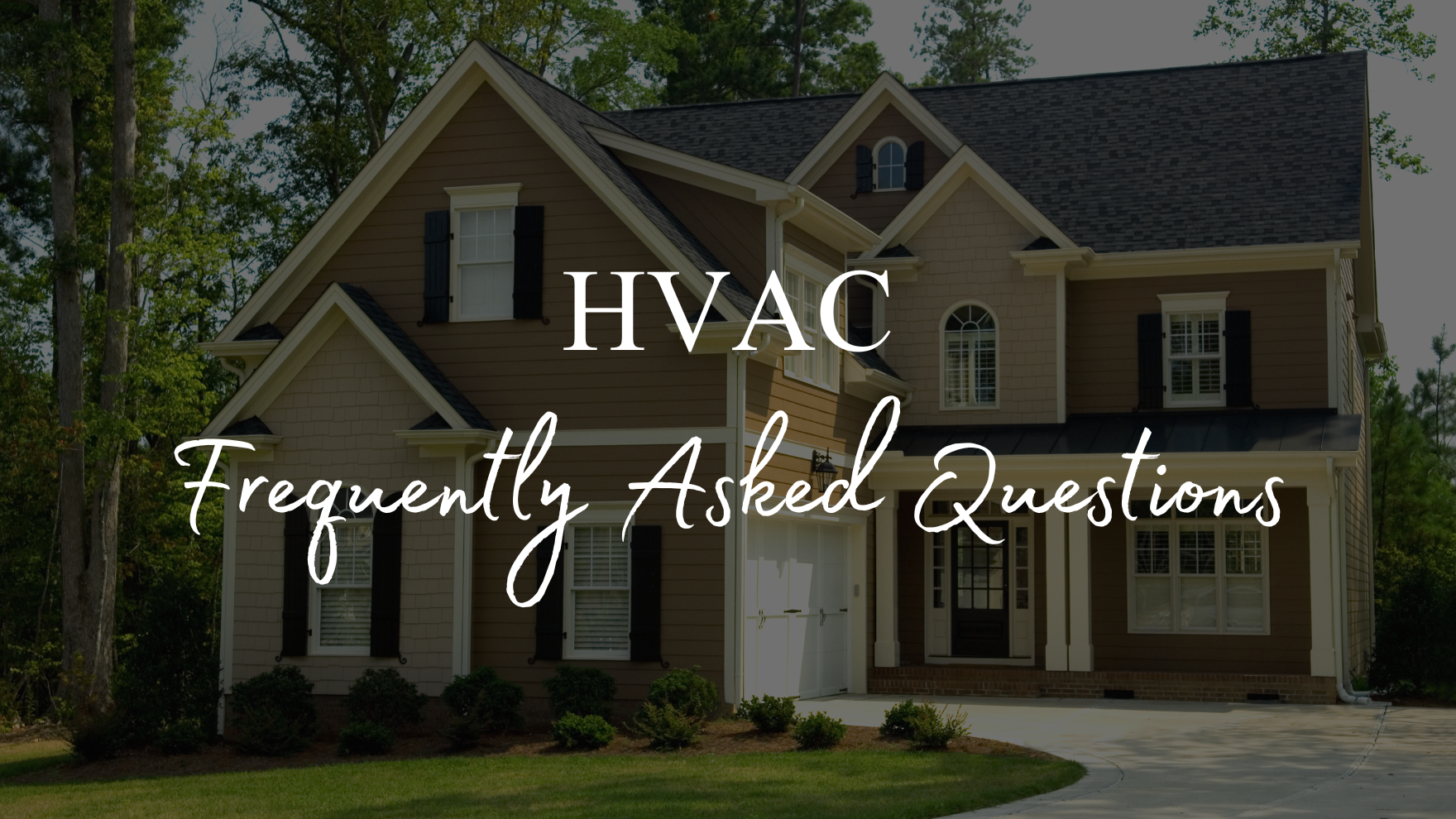
Air Conditioning Repair
Fast, reliable air conditioning repair when you need it most. Our skilled technicians diagnose and fix issues quickly, restoring your comfort with minimal disruption. From minor fixes to major overhauls, we'll get your AC running smoothly again.
Why Choose Florida Air Conditioning & Heating for your AC Repair?
24/7 Emergency Service
We're always on call because the Gulf Coast heat doesn't stick to business hours.
Local Expertise
Our technicians understand Northwest Florida's unique climate challenges and how they affect your AC.
Fast Response Times
We know a broken AC is an emergency - we'll be there quickly.
Transparent Pricing
No hidden fees or surprises - just honest, upfront pricing.
Experienced Technicians
Our team is trained to repair all AC brands common in Northwest Florida.
Signs Your AC Needs Repair
-
Your home feels humid even with the AC running
-
Energy bills are higher than usual
-
Uneven cooling throughout your home
-
AC is short cycling or running constantly
-
Unusual odors when your AC is operating
Don't Sweat It - Call us Today!
When your AC goes out, every minute feels like an eternity. Don't suffer in the heat – contact us for fast, reliable AC repair.
Call us at (850) 944-4002 or message us in the web chat to schedule your AC repair. We'll have you back to enjoying the sunshine from indoors in no time!

FREE SECOND OPINION
At Florida Air Conditioning & Heating, we offer Free Second Opinions to help you make the best decision for your home and budget.
Frequently Asked Questions About Air Conditioning Repair
-
What are the signs that my air conditioner needs repair?
Some common warning signs include warm air blowing instead of cold, weak airflow, unusual noises (buzzing, grinding, rattling), frequent cycling on and off, water leaks or excess moisture near the unit, spikes in your electric bill, or odd/unpleasant odors.
-
Why is my AC running but not cooling properly?
This may be caused by low refrigerant levels (possibly due to leaks), dirty or blocked condenser/evaporator coils, a faulty compressor, or thermostat issues. Poor airflow (dirty filters or blocked vents) can also reduce cooling performance.
-
What should I do if my AC is leaking water?
Turn off the system and inspect the condensate drain for clogs; check the drain pan for damage; confirm that the condensate line is clear. If the leak persists, it’s best to call a professional technician to find and fix the source of the problem.
-
Why is my AC freezing up (ice forming on coils)?
Ice buildup may result from restricted airflow (due to dirty filters, blocked ducts, or closed vents), low refrigerant, or a malfunctioning blower motor. Continuing to run a frozen AC can damage components, so it’s important to address this quickly.
-
Can I perform some repair tasks myself?
There are a few minor tasks homeowners can safely do: change the air filter, keep the outdoor unit clear of debris, routinely check thermostat settings. But more complex repairs—especially involving electrical components, refrigerant, compressors, or internal coils—should be handled by licensed HVAC professionals to ensure safety, proper code compliance, and warranty protection.
-
Is it better to repair or replace an older AC unit?
That depends on several factors: the age of your unit (many units last around 10-15 years), frequency and cost of repairs, energy efficiency of the current unit vs replacement, and your long-term plans (how many more years you intend to stay in the home). If repair costs are high and the system is old or inefficient, replacement may be more cost-effective.
-
What should I do if my AC stops working in extreme heat?
First, check basics: thermostat settings, power supply (breaker panel), ensure outdoor unit is unobstructed, check filter. If everything seems normal but AC still doesn’t work, contact an HVAC technician. We also offer emergency repair services to respond quickly when heat becomes a safety issue.
Common Air Conditioning Problems & How We Fix Them
Your air conditioner works hard to keep your home cool, especially during the hottest months of the year. When your system isn’t performing properly, it can quickly lead to discomfort, rising energy bills, and unnecessary stress. Our professional air conditioning repair services are designed to diagnose problems quickly and restore reliable cooling as efficiently as possible.
From minor performance issues to complete system breakdowns, our experienced technicians are equipped to handle all types of AC repairs and get your home comfortable again.
Signs You May Need Air Conditioning Repair
Catching problems early can help prevent costly breakdowns and extend the life of your system. Common signs your air conditioner may need repair include:
- Warm or weak airflow coming from vents
- Uneven temperatures throughout your home
- Rising energy bills with no change in usage
- Frequent cycling on and off
- Unusual noises such as rattling, buzzing, or grinding
- Musty or burning odors when the system runs
If you notice any of these issues, professional AC repair can help identify the root cause and prevent further damage.
What to Expect During an AC Repair Service
When you schedule air conditioning repair, our process is straightforward and transparent:
- Complete System Inspection – We thoroughly evaluate your air conditioner to pinpoint the issue.
- Clear Explanation – You’ll receive an easy-to-understand explanation of what’s wrong and what’s needed to fix it.
- Efficient Repairs – Our technicians complete repairs using quality parts and proven techniques.
- Performance Testing – We test the system to ensure it’s running efficiently and cooling properly before we leave.
Our goal is to restore comfort quickly while making sure your system operates safely and reliably.
Why Professional Air Conditioning Repair Matters
Ignoring AC issues or attempting DIY fixes can often lead to more expensive repairs down the road. Professional air conditioning repair services help ensure:
- Faster and more accurate problem diagnosis
- Improved system efficiency and performance
- Longer equipment lifespan
- Reduced risk of unexpected breakdowns
- Safe and reliable operation
Our technicians are trained to work on all major air conditioning brands and models and will always recommend the best solution based on your system’s condition and your budget.
Schedule Your Air Conditioning Repair Today
Don’t let a malfunctioning air conditioner disrupt your comfort. Whether your system needs a simple repair or more advanced troubleshooting, our team is ready to help. Contact us today to schedule dependable air conditioning repair and keep your home or business cool, comfortable, and energy-efficient.
Our Articles
View all-

How Freezing Weather Impacts HVAC Efficiency
Freezing weather may be rare in Florida, but when it happens, it can have a noticeable impact on HVAC efficiency. Systems that normally run smoothly in mild or warm conditions...
How Freezing Weather Impacts HVAC Efficiency
Freezing weather may be rare in Florida, but when it happens, it can have a noticeable impact on HVAC efficiency. Systems that normally run smoothly in mild or warm conditions...
-

Why Oversized HVAC Systems Waste Energy
Many Florida homeowners assume that a larger HVAC system will cool or heat their home faster and more efficiently. While that idea sounds logical, an oversized HVAC system often does...
Why Oversized HVAC Systems Waste Energy
Many Florida homeowners assume that a larger HVAC system will cool or heat their home faster and more efficiently. While that idea sounds logical, an oversized HVAC system often does...
-

Common HVAC Myths Florida Homeowners Believe
HVAC systems are essential for comfort in Florida homes, but there are many misconceptions about how they work and how to care for them. Believing common HVAC myths can lead...
Common HVAC Myths Florida Homeowners Believe
HVAC systems are essential for comfort in Florida homes, but there are many misconceptions about how they work and how to care for them. Believing common HVAC myths can lead...
-

Why HVAC Tune Ups Pay for Themselves
Many homeowners see HVAC tune ups as an extra expense, but in reality, regular maintenance is one of the smartest financial decisions you can make for your home. In Florida,...
Why HVAC Tune Ups Pay for Themselves
Many homeowners see HVAC tune ups as an extra expense, but in reality, regular maintenance is one of the smartest financial decisions you can make for your home. In Florida,...






